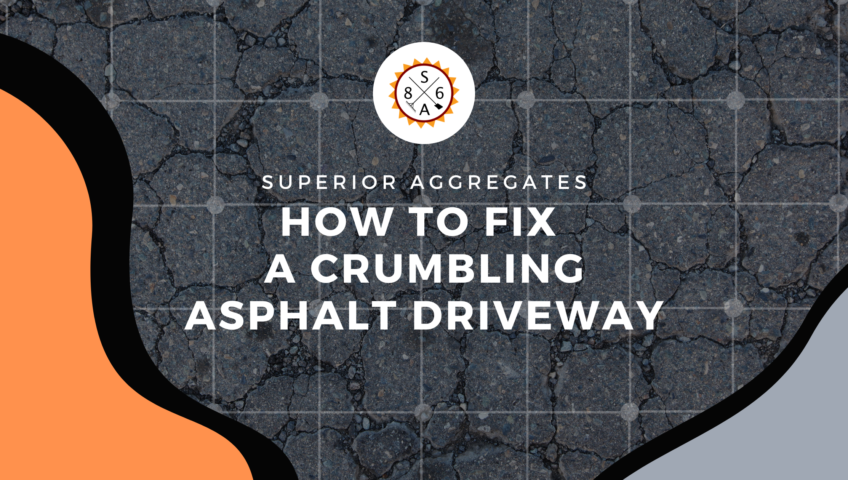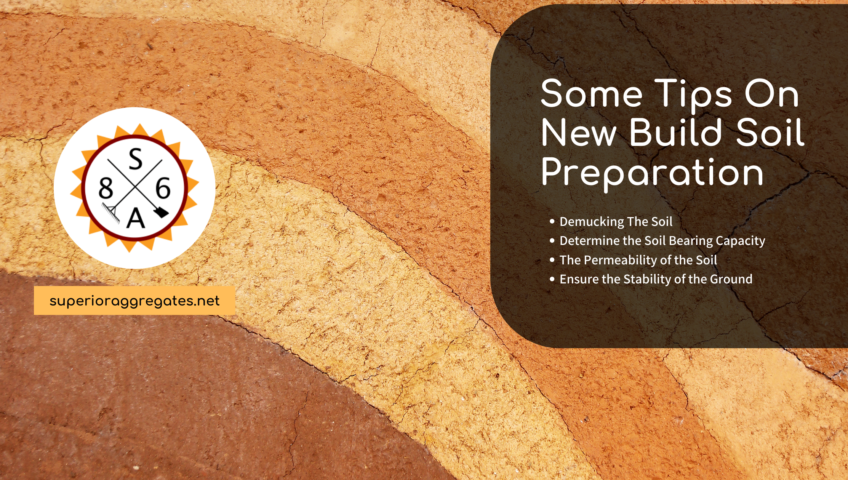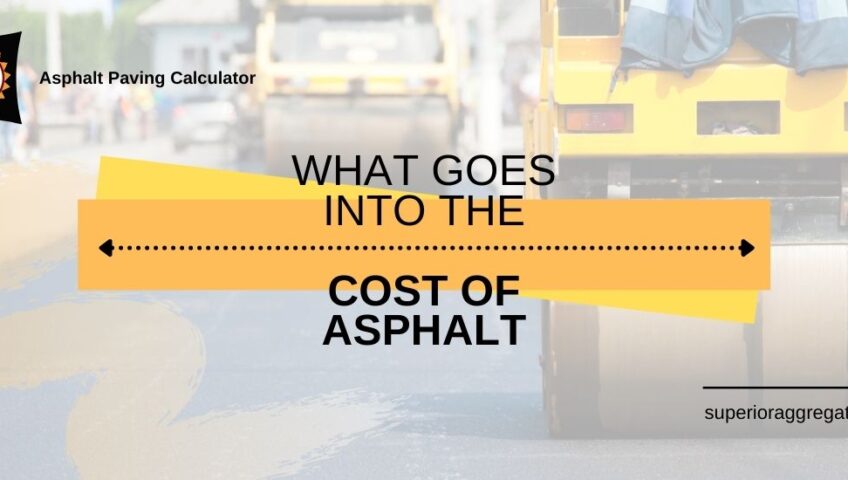
Why Isn’t My Asphalt Surface Smooth?
One of the reasons why you should use a professional asphalt contractor to lay your asphalt is because you can encounter a lot of issues if you attempt to lay asphalt yourself. One of the issues you may encounter is not having an asphalt surface that is smooth. This is problematic because it presents a tripping hazard to those walking on the surface and is not good for bike and car tires. If you have attempted to lay asphalt yourself and the surface is not smooth, here are a few of the reasons why you may have this issue.
Not Enough Asphalt to Bind the Aggregates
Hot asphalt is poured over an aggregate mix to form an asphalt surface, such as a road, driveway or walkway. When asphalt is hot, it has a thick consistency that is slightly soupy or runny. This allows it to get into all of the spaces between the aggregate mixture, creating a solid surface as the asphalt cools and hardens. But, if there is not enough asphalt poured over the aggregate mixture, you may wind up with a surface that is not. If your surface looks lumpy or uneven, this is the most likely cause. Fortunately, this can be relatively easily fixed. A new layer of aggregate and asphalt can be laid by a professional to help even out the surface and make it smooth.
Not Enough Compaction
Another reason why an asphalt surface may not be smooth is because there was not enough compaction. After hot asphalt is poured over an aggregate mixture, that new surface needs to be smoothed. This is done using either a roller or a tamper. Rolling the surface helps to push the hot asphalt down, so it binds to the aggregate mix, while also helping to push out air bubbles. This creates a smooth, level surface. If you notice the surface is not smooth and it looks like rocks or chunks of asphalt are being lifted away, this is the likely culprit. Unfortunately, fixing asphalt that is not properly compacted is not easy. In the worst cases, the entire asphalt surface needs to be removed and needs to be started fresh.
An Unsuitable Aggregate Mix
The final reason why an asphalt surface may not be smooth is because an unsuitable aggregate mix was used. You cannot use any aggregate mix and expect a smooth, level surface. You need to use one that features smooth, crushed rock combined with a mixture of smaller particulates. The exact aggregate mix that is needed will vary based on weather in your area, how much moisture your area gets and how you intend on using the asphalt surface. A professional knows what type of aggregate mix is ideal for your asphalt surface, whereas the average person has no idea what mix to use. There is no way to correct a surface that is not smooth due to the wrong aggregate mix.
If you have an asphalt surface that is not smooth, or you need a new asphalt surface laid, reach out to an asphalt contractor near me. They can ensure that there is enough asphalt to bind the aggregates, ensure the surface is properly compacted and use the right aggregate mix for your surface. Reach out to your preferred professional asphalt contractor today.
One of the reasons why you should use a professional asphalt contractor to lay your asphalt is because you can encounter a lot of issues if you attempt to lay asphalt yourself. One of the issues you may encounter is not having an asphalt surface that is smooth. This is problematic because it presents a tripping hazard to those walking on the surface and is not good for bike and car tires. If you have attempted to lay asphalt yourself and the surface is not smooth, here are a few of the reasons why you may have this issue.
Not Enough Asphalt to Bind the Aggregates
Hot asphalt is poured over an aggregate mix to form an asphalt surface, such as a road, driveway or walkway. When asphalt is hot, it has a thick consistency that is slightly soupy or runny. This allows it to get into all of the spaces between the aggregate mixture, creating a solid surface as the asphalt cools and hardens. But, if there is not enough asphalt poured over the aggregate mixture, you may wind up with a surface that is not. If your surface looks lumpy or uneven, this is the most likely cause. Fortunately, this can be relatively easily fixed. A new layer of aggregate and asphalt can be laid by a professional to help even out the surface and make it smooth.
Not Enough Compaction
Another reason why an asphalt surface may not be smooth is because there was not enough compaction. After hot asphalt is poured over an aggregate mixture, that new surface needs to be smoothed. This is done using either a roller or a tamper. Rolling the surface helps to push the hot asphalt down, so it binds to the aggregate mix, while also helping to push out air bubbles. This creates a smooth, level surface. If you notice the surface is not smooth and it looks like rocks or chunks of asphalt are being lifted away, this is the likely culprit. Unfortunately, fixing asphalt that is not properly compacted is not easy. In the worst cases, the entire asphalt surface needs to be removed and needs to be started fresh.
An Unsuitable Aggregate Mix
The final reason why an asphalt surface may not be smooth is because an unsuitable aggregate mix was used. You cannot use any aggregate mix and expect a smooth, level surface. You need to use one that features smooth, crushed rock combined with a mixture of smaller particulates. The exact aggregate mix that is needed will vary based on weather in your area, how much moisture your area gets and how you intend on using the asphalt surface. A professional knows what type of aggregate mix is ideal for your asphalt surface, whereas the average person has no idea what mix to use. There is no way to correct a surface that is not smooth due to the wrong aggregate mix.
If you have an asphalt surface that is not smooth, or you need a new asphalt surface laid, reach out to an asphalt contractor near me. They can ensure that there is enough asphalt to bind the aggregates, ensure the surface is properly compacted and use the right aggregate mix for your surface. Reach out to your preferred professional asphalt contractor today.




